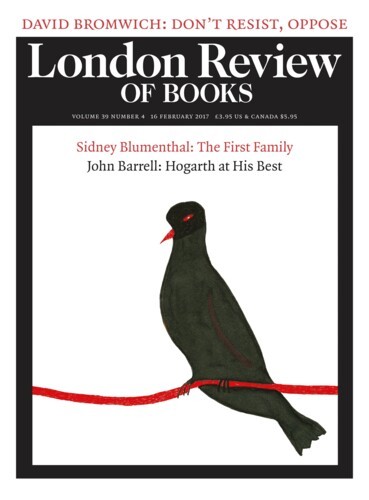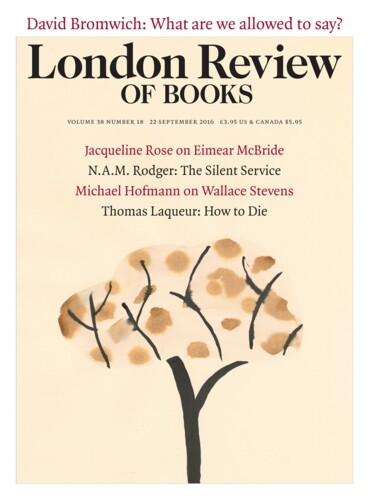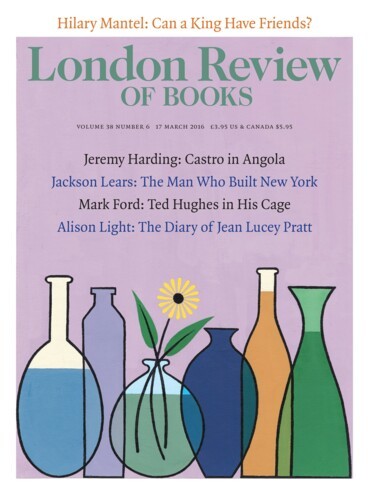Act One, Scene One: Don’t Resist, Oppose
David Bromwich, 16 February 2017
The national security state that Obama inherited and broadened, and has now passed on to Trump, is so thoroughly protected by secrecy that on most occasions concealment will be an available alternative to lying. Obama’s awareness of this frightening legacy accounts for the unpredictable urgency with which he campaigned for Hillary Clinton – an almost unseemly display of partisan energy by a sitting president. All along, he was expecting a chosen successor to ‘dial back’ the security state Cheney and Bush had created and he himself normalised.




